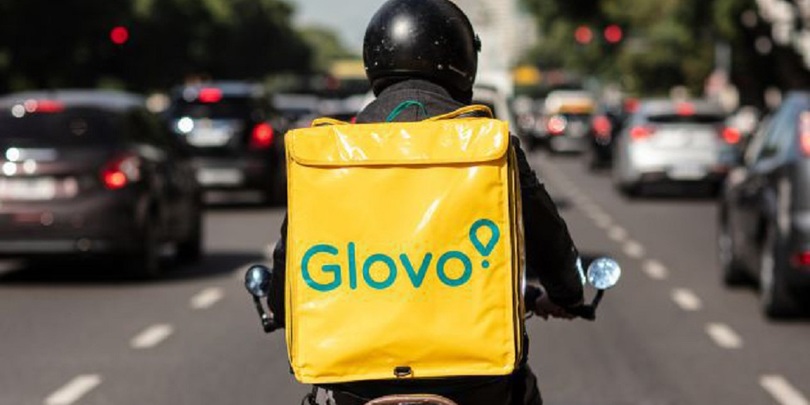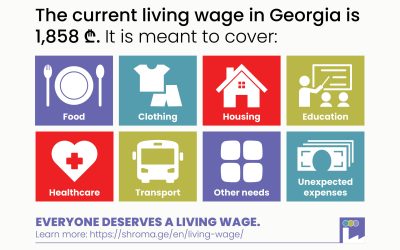The Georgia Fair Labor Platform expresses its solidarity with Glovo couriers’ strike over harsh working conditions, supports their demands and stands ready to provide legal assistance to couriers to improve their working conditions.
On January 29, more than 100 Glovo couriers refused to work, and held a protest over harsh working conditions at the company. The couriers point to various systemic problems which negatively impact their daily working conditions. At the root of the problem is Glovo’s practice of hiring all couriers on “individual entrepreneur” service contracts – rather than employment contracts – which weaken their workers’ labor rights protections. However, the company is not even fulfilling its obligations under the service contracts.
The couriers have voiced their concerns over working conditions internally for months, but the company has failed to adequately respond. Based on information provided to us by the couriers, their complaints center on Glovo’s following practices:
Lack of a transparent payment system and unilateral change of courier fees
- Courier fees: Under current practice, couriers get a fixed fee of 2 GEL for each delivery, with an added 30 tetri for each kilometer. The fee was much higher before the pandemic, but was unilaterally reduced by the company.
- Bonuses: In order for a courier to receive a bonus, he must complete 180 orders per week. That means they need to fulfill an average of two orders per hour, working 90 hours per week – more than twice the normal working time of 40 hours per week.
- Unliteral contract amendments: Under Glovo’s standard contract with couriers, the company permits itself to unilaterally change the terms of the contract by sending an electronic message to couriers. A courier’s failure to respond to one of these messages within 72 hours is considered an assent to the new terms. As a result of these contract amendments, couriers have seen their remuneration and bonuses reduced several times in recent years, without proper negotiations or prior notice.
- Lack of negotiation options: Although the company and the couriers are formally considered as equal parties under the service contracts, the couriers have no effective mechanism to negotiate contract amendments, including changes to their fees.
- Wage theft: Some couriers also report forms of wage theft, including incorrect calculation and reimbursement of kilometers traveled; withholding of tips; and incorrect blocking of their available working hours on the Glovo app. Further, couriers do not have an effective mechanism to verify that their remuneration is commensurate with the amount of remuneration accrued by the company.
- Bonus system enrollment: Couriers have also reported problems with Glovo’s bonus enrollment system, which the company often does not apply at all (or applies late) during rainy weather. As a result, couriers miss out on additional payment despite working in dangerous conditions.
- Equipment: It should also be emphasized that couriers have to purchase Glovo-branded work equipment at their own expense, even though the primary purpose of this equipment is to advertise the company.
Traffic safety
- The volume-focused payment and bonus systems force couriers to fulfill orders quickly, which endangers their health and safety on the road, as well as the health and safety of others.
- Despite imposing contract terms which create an unsafe work environment for couriers, Glovo bears no responsibility for any injury or property damage that couriers sustain or cause.
According to media reports, Glovo plans to meet with couriers on February 10 and draw up an action plan to address their concerns. We call on the company to comply with the couriers’ demands in a timely manner, eliminating systematic illegal practices and immediately ensuring the improvement of working conditions.
The Fair Labor Platform expresses solidarity with the couriers’ demands and reiterates its readiness to provide legal assistance to them in the process of improving working conditions.
Signatory members of the Fair Labor Platform:
- Georgian Young Lawyers Association
- The Human Rights Education and Monitoring Center (EMC)
- Union of Social Workers
- Tbilisi Metro Independent Trade Union – “Ertoba 2013”
- Healthcare and Services Trade Union – “Solidarity Network”
- Open Society Foundation-Georgia (OSGF)



